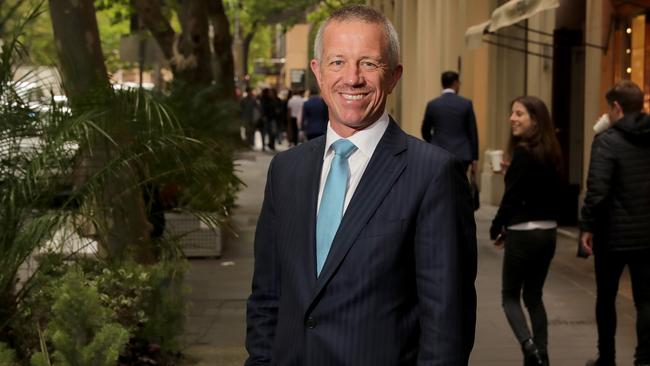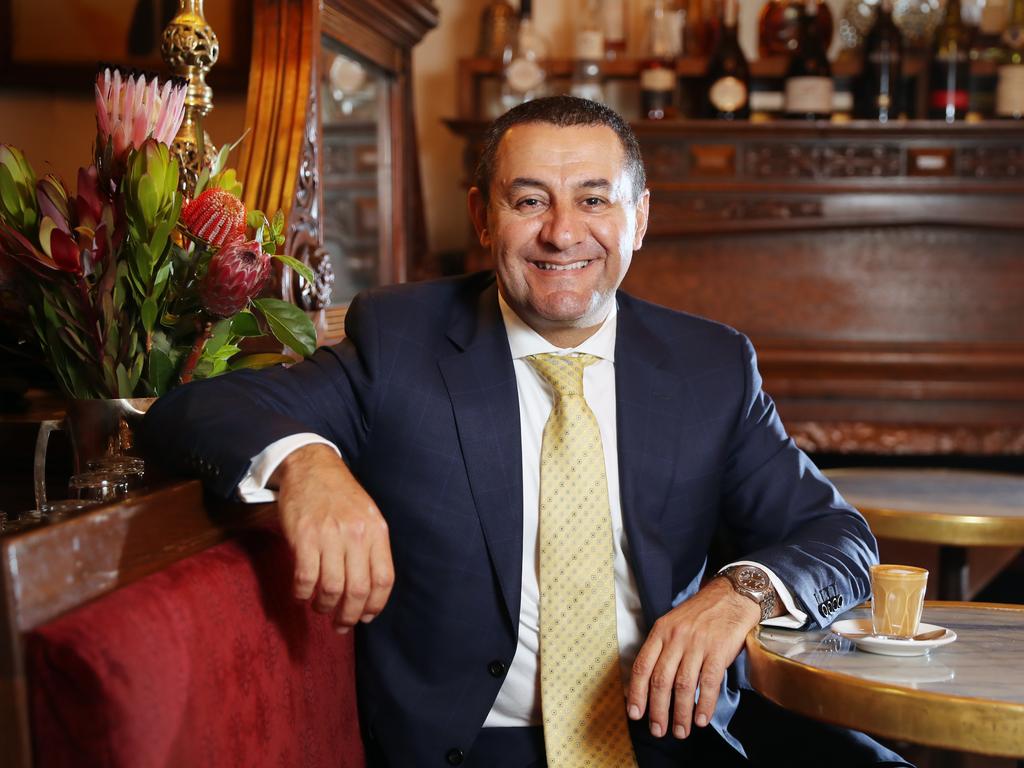NAB demotes some investors as business banking chief Anthony Healy to depart
NAB warns shareholders to brace for pain as it moves to demote some unsecured debt investors, and a key executive leaves early.

Unsecured hybrid debt securities issued by the major banks have been whalloped again on Monday, hit by a “fear of conversion”, as shares in major financial groups are sold-off amid rolling government shutdowns across the globe.
A confirmation by National Australia Bank on Monday that it had pushed ahead with a plan foreshadowed in February to convert some unsecured debt investments into $750m worth of lower-ranked equity holdings added to the market rattles.
Westpac Capital Notes 6 were down 9 per cent on Monday, while ANZ capital notes ANZPD were 7 per cent lower.
Bell Potter analyst TS Lim said NAB’s conversion of its capital notes, announced in its early February update, was “always in the works” because the bank was “short of capital”, given potential regulatory action by the anti-money laundering regulator Austrac and other requirements.
Mr Lim said hybrid notes were being hit by “the fear of conversion” and that NAB and Westpac would likely have to raise equity on the sharemarkets.
It came as NAB confirmed the head of its key business lending division, Anthony Healy, would be leaving the bank, just weeks after consumer division boss Mike Baird announced he would also quit. Mr Healy had been leading the bank’s liaison with Treasury as the government assembles its plans to keep the economy ticking over during the coronavirus pandemic.
The departures mean NAB will, by April 30, be without two executives who led the most important parts of the bank — mortgages and corporate loans — at a time when the coronavirus pandemic is wreaking havoc on the financial sector and as the government tries to resuscitate the flow of loans to households and small businesses.
While NAB had forewarned of converting its capital notes in February, the hybrid market has been in turmoil as investors pull out of the riskier securities.
Investors have sold off the securities amid concerns about debt markets coming under strain as global governments shut down economies.
While NAB’s conversion of hybrid instruments was not triggered by the current market, it is a taste of what could be repeated across the market as corporations come under stress amid the coronavirus shutdown.
NAB noteholders were fully paid out $100 in cash per hybrid note, which were then onsold to an investment bank, understood to be UBS, which now holds the converted equity position.
But NAB warned shareholders on Monday to brace for pain as the company prepared its upcoming half-year accounts.
“In particular we note the current volatility and dislocation in global capital markets may negatively impact on mark-to-market valuations in the markets and treasury portfolios,” NAB said in a statement on Monday.
“The broader economic impact of the pandemic is expected to impact on asset quality, leading to increased provisions and risk weights over time.”
“The expected duration and magnitude of this pandemic and its potential impacts on the economy and financial markets are unclear,” NAB told investors.
“It is not known whether the measures being taken will be sufficient to control the spread of the virus or to limit the impact on the economy. Should the impact of the virus be severe or prolonged, it is expected to have a material adverse impact on the global and Australian economies, which in turn may have a material adverse impact on NAB’s financial performance and position.”
Earlier this month National Australia Bank pulled the trigger on cancelling a $2bn raising through a hybrid capital notes offer, after the listed hybrid market suffered its worst trading day on record.
Hybrid notes, or capital notes, are part debt and part equity and reward investors with a higher rate than bank bonds or term deposits, due to the risk the financial instruments carry. Hybrid payments can be suspended in the event of a crisis and the value of the investment can be converted into shares or written off to zero.
In the hierarchy of capital, depositors are the first to get their money back in the event of a bank going insolvent. Senior creditors and bond holders are then paid, followed by subordinated note holders, hybrid capital holders and, lastly, shareholders.
When banks are experiencing financial stress, often paired with share price falls, the company has the right to convert unsecured debt holders into equity positions, wherein shareholders would be unlikely to be credited with anything in the event of a collapse.
Departures
Mr Healy and Mr Baird were both considered likely candidates to replace former NAB chief Andrew Thorburn, who left the bank in the wake of the royal commission.
However, former Royal Bank of Scotland chief executive Ross McEwan ultimately won the job.
Mr Healy will depart the bank on April 30, after 10 years with the lender. Mr Baird departs his post on April 15.
“Now is the right time for me to consider what the next 10 years look like, professionally and personally,” Mr Healy said.
NAB’s chief risk officer in its business lending arm, Michael Saadie, will take over in an interim capacity as the company looks for a permanent replacement.
NAB shares have been hammered since late February, along with the rest of the financial sector and the broader ASX, falling about 50 per cent.
Mr McEwan said Mr Healy was a key member of the NAB team in a challenging period.
“I have valued his support since I joined NAB. I wish him well for the future,” he said.
Australia’s financial regulators have thrown hundreds of billions at the financial sector to keep it afloat as governments race to shut down the economy to prevent further spread of COVID-19.
The Australian Prudential Regulation Authority has told banks it will allow them to dip into their prudential capital buffers to an extent in order to keep lending books open, while the Reserve Bank is injecting billions into the lending market and the government has set up loan repayment holidays for stressed borrowers.






To join the conversation, please log in. Don't have an account? Register
Join the conversation, you are commenting as Logout